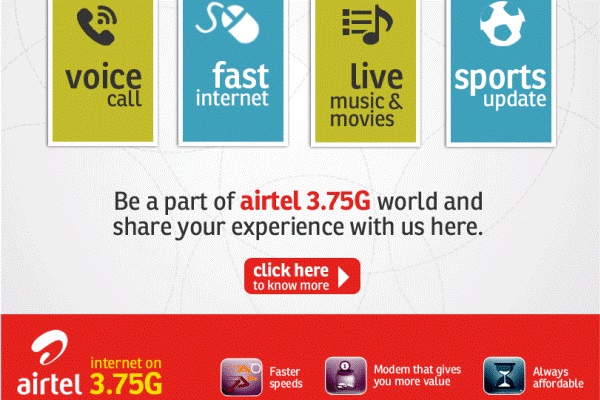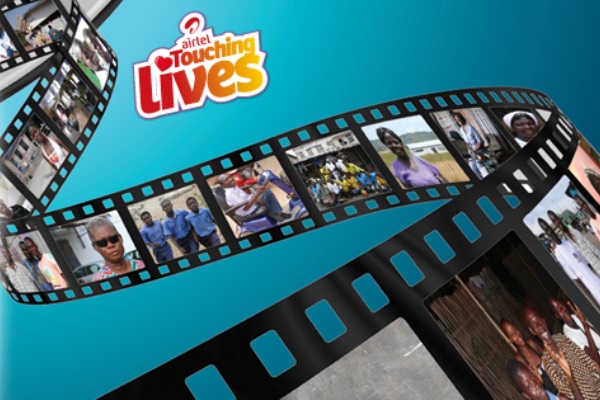Airtel Ghana: Best Telecom Company of the Year
Philip Sowah presents some of Airtel’s new products and services. He also talks about the “Best Telecom Company of the Year” award they recently won, discusses the importance of CSR for Airtel and shares his vision for the future.
Interview with Philip Sowah, Managing Director of Airtel
Since last time we talked, you have launched many services. Let’s take an interesting example. You just re-launched an online Airtel money trade and that allows people to do many things such as buy videos, Amazon books, etc. Can you tell us more about it and what it is going to bring to consumers here?
Right now at Airtel we are pushing towards 20 to 25% of the revenue coming from non-voice revenue and that is growing every year. We see in a couple of years having 50 to 60% of the revenue coming from non-voice.
We know our customers want to go on the internet and they want to be able to transact. What we are doing is we are facilitating this with our Airtel money product. Basically we have a web portal that you can use to buy different products and pay with Airtel money; really, it’s to facilitate electronic trade.
And that can be for any sort of product? What are the services that you can use it for?
If you look at it, the product list is growing every day. The trick for us is that we need to get more local content. The idea is to try and make the case for companies in Ghana to come online with their products. Once we do that, then we know we are winning because the consumer wants things they can buy locally. We want to make that connection because there aren’t many Ghanaian companies that have web stores.
How are you going to attract these local Ghanaian companies to be part of your service? What is your strategy?
We have a comprehensive plan for that. One part of that is just “feet on the streets” and we have salespeople who are selling hard. We are also launching other products that will help retailers and vendors. For example, we have something called the Airtel Cloud and that is a package for small and medium-sized enterprises so you can set up your own webpage with contacts, products, etc. You can also get business productivity software, such as a word processor or spreadsheet; it’s a virtual office in a box. That is really the way we are attacking the small and medium-sized business market.

You have also launched a data bundle service. Can you tell us more about this service?
We have launched a couple different facets of data bundles. For us at Airtel, we think of ourselves as a data telecom company. We provide good data. In doing that, we are trying to get all the various segments of customers to be able to enjoy our services. We need to make data more economical so the best way to do that is to sell bundles where you commit two cedis (GHS) and two cedis (GHS) give you a certain number of megabytes that can last either a week, or five cedis (GHS) that can last thirty days. If you are a heavy user, you can pay for thirty or even sixty cedis (GHS).
What that does is it allows you to have lots of data volume for a low price. One of the things we’ve just launched is the ability to gift data. I can buy a bundle for you and then send it to your account for you to enjoy. This can be for family or friends, or for employees. This could work very well for small companies. If you have some staff that need to do some work and you don’t have a LAN, which most small companies don’t have, you can just gift them some data and they will have access to the internet.
You won an award for Company of the Year. Can you tell us why you won this award?
The award was really fantastic because Chartered Institute of Marketing (CIMG) is a respected organization and so winning the Best Telecom Company of the Year is really important for us. What it does is it validates everything that we are doing. For us, customer service and customer focus is very important. This really validates all the hard work that the team has put in to make sure the customer is properly served, that we develop the right products for customers, that we have a high quality of service, and a good network. This brings everything together and that’s why it is so important to us.
On your CSR level, President Mahama commended Airtel for funding the clinical teaching facility at the university of Cape Coast. In that regard, what do you expect from that and what is your participation?
CSR is what gives me satisfaction in this job because CSR is giving back to your customers and your society for what they’ve given to you. For us, setting up the facility for the medical school is incredible because before the facility, all the students who went to the University of Cape Coast, after a certain number of years, had to go to Kumasi, which is in another region and 231 kilometers away, to complete their studies because of the lack of facilities. So we put this facility in place, which by the way, was purposely built, and not a renovation of an existing building.

Secondly, one of the outputs is that forty two new doctors were graduated and will be disperse across the country to address the unmet need of the various communities. We are indeed proud and humbled that the President Mahama during his visit to the graduation ceremony made mention of Airtel’s contribution. The country can now produce additional doctors every year and for us this is a big plus. CSR is a big part of the Airtel DNA. We devote quite a lot to education and normally it is primary school education with a focus on the girl– child as much as we can. But more importantly, it looks at education as a whole and tries to support it.
Thirdly, we have a program that we run called Touching Lives. Touching Lives is a special program to us because what it does is it looks at all the people who are doing well or doing good things in their society in Ghana. People recommend them, we evaluate them, and then we help them do more of what they are doing. We help them touch more lives since they are already touching lives. That is a big plus for us.
How do you see the mobile operators developing? What are the next steps you see happening?
The next step you see in terms of the telecom industry is that data is going to get bigger and bigger. Ghanaians still don’t use location-based services. If I wanted to order a pizza for example, the last place I would look to search for a pizza place would be the use of my smart phone. You would either ask somebody or drive around to locate the nearest one. Once we bring a lot of commerce onto the internet and then make data the enabler of this, I think you’re going to see the country change quite a bit. You will see much more commerce, traders, and car mechanics, for example riding on data to transact their business.
Right now at Airtel we are pushing towards 20 to 25% of the revenue coming from non-voice revenue and that is growing every year. We see in a couple of years having 50 to 60% of the revenue coming from non-voice. Voice has reached a relative plateau and now additional services are going to ride on it. We have a long way to go on data. What you’ll see happening is that we are going to start putting SIM cards in all kinds of devices. Every device is now going to have a SIM card. It could be in cars so you can track the whereabouts of your car or it could be a POS device so you can take credit cards. Lots of people have cameras that have SIM cards so they can review any pictures in the comfort of their homes or upload it onto the internet. Really, that is going to be the growth. Data is going to be the platform but then we are going to have more and more applications and devices using SIM cards on the data platform to deliver service.

What about on an international level?
At Airtel, one of the big things for us is our One Network. This is huge and you can see it is somewhat being replicated in Europe now. This is the ability for anyone using an Airtel SIM card, either pre-paid or post-paid, to go to any of our seventeen countries in Africa and as soon as you get to that country, you are local. What that means is you can receive calls without any extra charges and you can buy credits on the street and top up your phone. Basically, the phone becomes local in the country you are in. This is a fantastic service for a lot of travelers, in particular since intra-Africa trade is happening a lot more. We have lots of people who go to Nigeria, Niger, Nairobi, Jerusalem, etc. and they are always local so it’s a very cost-effective way to run your business.
And this is being copied in Europe?
I believe the EU Commissioner for Telecom used us as an example for her big issue around why it is so expensive to roam in Europe when companies in Africa can make roaming so simple and so easy.